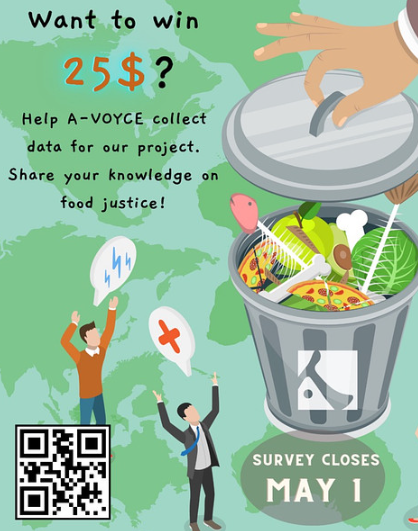Food justice is a movement advocating for equitable access to nutritious, culturally appropriate food, sustainable production practices, and addressing systemic inequalities within the food system. Recently, members of the Asian Voices of Organized Youth for Community Empowerment (A-VOYCE) organization took the initiative to address its importance to local communities in Malden and beyond, starting with a survey.

Compared to previous years of distributing the survey, A-VOYCE members—many of whom are MHS seniors—wanted a larger demographic so we could “compare the experiences between different age groups and how much they know about these topics surrounding food access,” said senior Ada Li.
Senior Angela Phu highlighted ACDC volunteers who helped them translate flyers for and the survey itself into multiple languages other than English, such as Chinese and Spanish, to “expand our reach to fit Malden’s diverse community.” Another way they boosted engagement with the survey was by having respondents with complete surveys automatically entered into a free raffle to win a $25 gift card.
So far, their efforts have led them to receive over 140 survey responses. However, obtaining this significant number was not the main goal. Senior Xenia Liu expressed the issue with food access and waste in local communities: that people in underserved populations “often have to travel far to get affordable and healthy groceries… so we wanted to address the issue through the survey to see how many times people waste food and what they do waste.”
Hu connected the prevalence of food justice in underserved communities to climate change, given that food waste is the “third largest source of greenhouse gas emissions.” Phu added that this may particularly affect low-income POC communities which are “more vulnerable to climate change because these communities often lack resources and live in areas with pollution and limited protection from extreme weather.”
Overall, A-VOYCE members believe that reducing food waste and making food more accessible “helps feed those who are hungry and improves food security,” said Li. Distributing this survey may be the first step.




